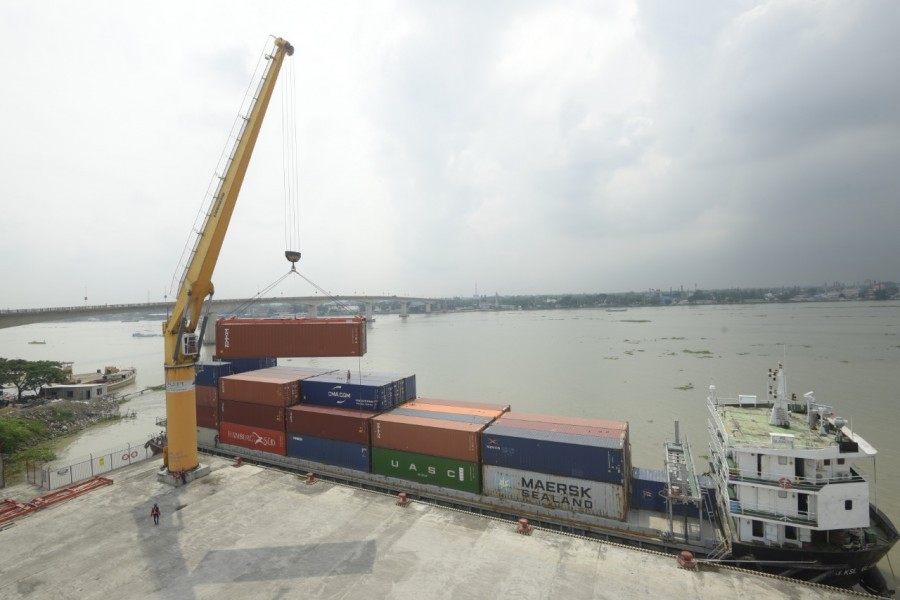The National Board of Revenue (NBR) has allowed Summit Alliance Port Limited (SAPL) to handle exports and imports of bulk and non-containerised cargoes to facilitate bilateral trade with India.
From now on, the Inland Water Container Terminal (IWCT) of the company will be able to deal with a number of products through Muktarpur, Munshiganj under Pangoan Customs Station.
Some 99 per cent of the imported goods from India arrive here in the bulk and break bulk (non-containerised) forms.
The customs wing of the NBR issued an order on Wednesday, allowing the terminal to handle 37 types of products including rice, all types of pulses, maize, onion,ginger, garlic, grains, newsprint paper, industrial machinery, coal, cotton, chemical fertiliser, wood log, fly ash, clinker for cement, mastered, petroleum bitumen, quartz, fresh and dry fruits, nuts, lime stone, stone and boulders, marble stone, fish fry, seeds, mound of paper, china clay, dry chili, livestock etc.
With the order, a new avenue of import and exports to and from India opened, said Chief Operating Officer of SAPL IWCT Md Abdul Hakim.
He said the dependence on Benapole and other land ports will be reduced to a great extent now. There was no permission to handle bulk and break bulk products through the IWCT, he added.
As per the Protocol on Inland water Transit and Trade, ships from India can directly come of Bangladesh, but the private terminal could not call the ships due to legal complexities, he said.
Currently, a limited number of products arrive from India through Narshingdi, Khanpur as it is not well-equipped, he added. "We have all necessary equipment with modern facility in the terminal to handle import-export products and boost bilateral trade."
In the latest order, the customs wing gave a detailed guideline which the company and the customs officials have to follow to import and export through the terminal.
Prior to starting the bulk and break bulk handling activities, the customs house at Pangoan will ensure that the SAPL has proper infrastructure inside the terminal, including import warehouse, storage for keeping goods that would go for auction, destruction, banking facility with treasury, sufficient arrangement for fire safety, vehicle scanner for scanning the products.
The importers will have to seal the products inside ship. Customs will not allow any products imported without seal or openly.
Customs officials in Auntihara will check the Indian seal inside the ships and if they find it ok, they will put a new seal.
Under risk management activities, the customs will be able to open hatch of the selected products for investigation purpose and again they will put seal on it.
The customs officials at the SAPL-IWCT will check both the seals of India and Bangladesh prior to giving permission to open hatch of ships and unload products.
In case of broken seal, the customs officials of Auntihara will put a new seal and appoint an escort official to send the ship at SAPL.
The customs officials at the SAPL will conduct 100 per cent physical verification of the products arrived with broken seal.
If necessary, the customs can use electronic seal/lock system or GPRS system.
To avoid environment and river pollution, the SAPL will ensure environment-friendly and quality handling system.
The shipping agents will have to submit Import General Manifest (IGM) through online in the Asycuda World System.
The importers will have to mention names of raw materials and H.S code in the bonded warehouse licence.


